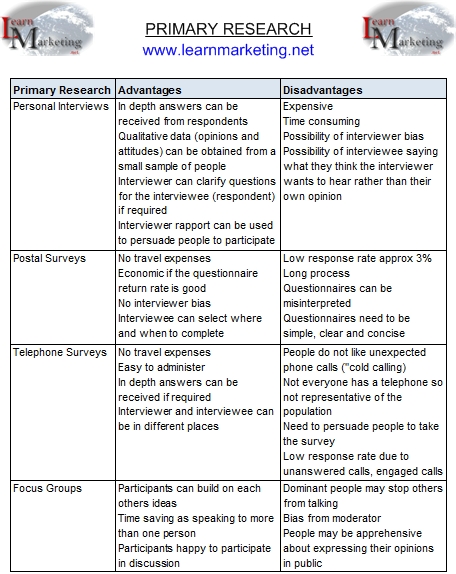Secondary market research gives businesses a ‘Big Picture' handle on their target audience, but from there it is vital to drill down further to obtain a more granular understanding of customers that belong to smaller demographic segments - that's where primary market research comes in.
This guide by leading UK audience insight specialist crowdology gives businesses a useful explanation of the ins and outs of primary research.
Primary Research Explained
Once secondary research has confirmed that your company's products and/or services have a valid place within the existing marketplace to earn profit, your next course of action is primary research, which will allow your business to hone in on the needs of your audience based on key factors such as their gender, age group, lifestyle and economic bracket.
In addition to a number of proven methodologies that a professional market research company can offer to find out these things, you can also conduct valuable primary research by asking your customers for their feedback at every touch point of the buying process. Not only will this give you important insight, it also tells customers that you care about what they think and want to improve where needed - this builds brand trust.
Primary Research Methodologies
These are the methods that professional market research companies use to gather key demographical information about the people who are interested in the type of products/ services that your company offers:
Email Campaigns
First, a database of people who are happy to give their opinions is acquired - either through purchasing one or asking your existing customers and associates for permission. You should never contact people who have not given consent as this is considered spam (which most people take a dim view of). You could always encourage people to answer a few questions in return for credits or discounts on their next shop. It is not advisable to conduct a true survey on your own since there is an entire psychology to asking questions that prevents upsetting anyone and gets to the most useful information - best to let the experts handle this.
Surveys
Surveys have long been conducted via direct mail (after purchasing a database) or over the phone (20 minutes being the maximum amount of time to yield good results), however the drawback is that many people find it a hassle to write out and post paper surveys, and many people get highly irritated if they receive marketing calls at the wrong moment when at home or in the office. With the advent of the Internet, online surveys have the advantage of far greater reach and response rates because people find it easy to fill them in when they have a convenient moment.
Focus Groups
Focus groups entail a gathering of around eight people with the remit of discussing a range of topics. To get the best results, an experienced moderator needs to be on hand as they will ask the right questions and gain key data by noting not only what an individual says and implies, but also the interaction of the group dynamic as a whole.
Interviews
This methodology becomes valuable when conducted by a skilled and experienced interviewer who is adept at subtly probing a consumer's psyche to discover their hidden thoughts and motivations. Interviews have the benefit of providing thorough, in-depth data (providing the questions are constructed effectively). They can be conducted over the phone (after making an appointment) or by giving people an incentive to take part at a specified location. For short answers, interviews can also be done by stopping people on the street.
Online Bulletin Boards
While blogging sites, forums, social media platforms and online bulletin boards re easier and cheaper than other methodologies, they carry the ever present risk of being hijacked by silly people at best and vile trolls in the worst case scenario. With the absence of a skilled interviewer or a professionally constructed survey, bulletin boards also cannot deliver the same on point data as other forms of primary research, Nevertheless, they can be a useful steer by opening up a dialogue or topic of discussion, like a fisherman casting a wide net, to gather initial input from a broad demographic of people.
Conclusion
In a nutshell, primary research is key to understanding the needs, desires and motivations of different types of consumers. For the best results however, crowdology advises businesses that they need to choose the appropriate methodology to tap into the right people and gather the most relevant information.
Shared by http://www.crowdology.co.uk/








